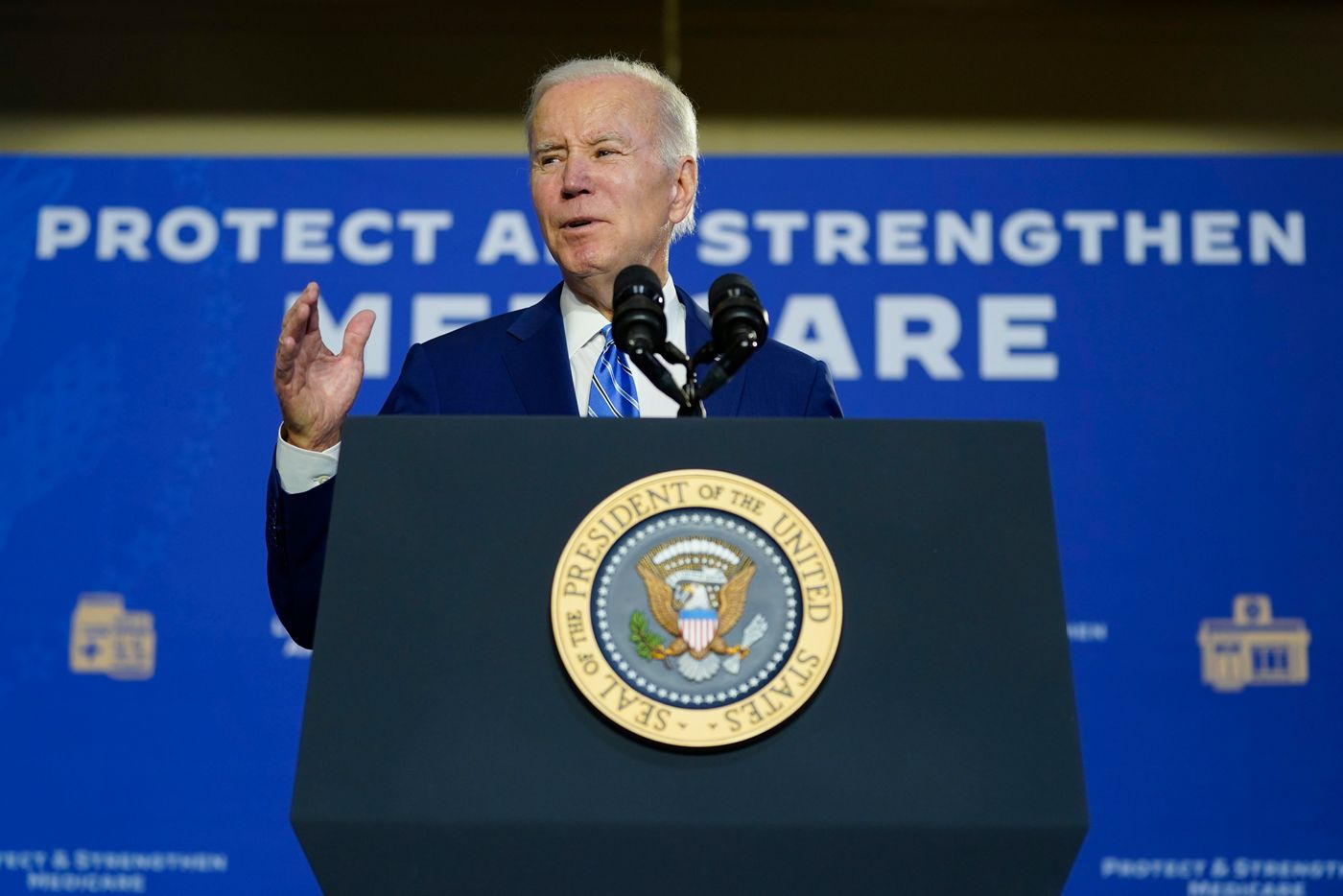
Mike Pence on Leadership and the Future of the Republican Party
Former US Vice President Mike Pence looks back on the events of January 6 2021, his final days in office with President Trump and his…
Thought Leader: Mike Pence

President Biden’s back-and-forth with Republicans over entitlements during his State of the Union address was pure political theater. All politicians say they stand with seniors, but any politician who stands by the failing status quo, refusing to make changes to Medicare and Medicaid, is standing on a house of cards. A lack of action will cause these important programs to collapse.
The current rate of growth in Medicare and Medicaid is unsustainable and jeopardizes the country’s ability to fund other priorities such as education, infrastructure and public safety. While the Medicare board of trustees has warned that the program is headed for insolvency in as little as six years, Medicaid has become the largest budget item in most states. Medicare and Medicaid collectively are one of the largest contributors to the national debt and will be the largest federal budget item by 2030, according to the Congressional Budget Office.
The answer to the current challenge doesn’t have to be rationing of care, higher taxes or increased costs for beneficiaries. Instead, the president should work with Congress to address the programs’ structural problems using common-sense market-based reforms. Doing so will help sustain important safety-net programs and improve the healthcare system for all Americans.
Both Medicare and Medicaid set prices in an inefficient fee-for-service model that pays doctors and hospitals for the volume of services they perform with no regard to quality or outcomes. It’s time to change Medicare’s and Medicaid’s reimbursement schema by moving them toward a value-based reimbursement model.
To ensure that care isn’t rationed, part of the doctor’s reimbursement is tied to quality and patient outcomes. For example, doctors can use part of the capitated payment to cover the costs of home modifications to prevent falls, to provide medically tailored meals for diabetics, or to send a nurse to a patient’s home to administer medications.
Value-based reimbursement can also be used to address new high-cost medications. If a patient doesn’t show meaningful improvement after taking the medication, the drug manufacturer’s reimbursement would be reduced or not paid at all.
Mr. Biden spoke of a broad need for more competition in America, and he’s right. He could start by fixing broken federal policies that benefit healthcare monopolies. While plenty of providers embrace value-based care, others refuse to change. That’s because many of them are sitting in monopolistic positions in their respective markets, crowding out competition.
As a result, prices rise while quality and innovation go down. Across the country healthcare monopolies—including large hospital systems—are refusing to be held accountable for quality, to accept value-based contracts, and to negotiate prices with payers, employers and state Medicaid agencies.
Additionally, the federal 340B Drug Pricing Program provides discounted drugs to so-called safety-net providers to help them reduce medication costs for low-income patients. But providers aren’t required to pass on the discounts when selling medicines to patients and can pocket the profit. To this end, 340b providers have worked to acquire physician-owned clinics and smaller hospitals, allowing them to expand their use of the program and thus their profit and monopoly power.
Medicare also forces seniors to get surgeries in hospitals. The “Medicare inpatient-only list” outlines the type of procedures that are reimbursable only if done in hospitals. It ignores that many operations can be safely performed in outpatient centers where the cost is lower and the quality is higher. This makes it harder for outpatient surgery centers to compete with large hospital monopolies, which perform the vast majority of surgeries for Medicare patients.
The Trump administration tried to remove the inpatient-only list, making it clear that medical decisions shouldn’t be made by federal bureaucrats. Unfortunately, the Biden administration reversed course on this important regulation, increasing costs for Medicare and seniors.
Finally, more needs to be done to enforce price-transparency regulations for both payers and hospitals. Competition and market forces can’t work without transparent prices. The regulations set a clear path for a future in which payers, employers and patients can shop around for high-value providers. We need to take a tough stance against providers and payers that refuse to comply.
The debt-ceiling debate provides the perfect opportunity to implement these practical reforms. The president and Congress can work to lower costs and increase quality through market competition to avoid more draconian changes like benefit cuts, increased taxes or higher beneficiary spending.
Immediate changes will fortify Medicare and Medicaid for today’s beneficiaries as well as future generations. We promised our nation’s seniors and vulnerable populations high-quality healthcare. We owe it to them to keep that promise by reforming Medicare and Medicaid.
Ms. Verma served as administrator for the Centers for Medicare and Medicaid Services, 2017-21.
Mike Pence on Leadership and the Future of the Republican Party
Former US Vice President Mike Pence looks back on the events of January 6 2021, his final days in office with President Trump and his…
Thought Leader: Mike Pence
Marc Short on U.S. Investment in Critical Minerals
Why do critical minerals matter now? Marc Short explains how U.S. investment in critical minerals fits into a broader strategy around economic security, manufacturing, and…
Thought Leader: Marc Short
Marc Short on AI Policy and the Government’s Role in Chip Technology Investment
On CNBC, Marc Short breaks down the role of AI policy and how government investment is shaping the future of chip technology. A former Chief…
Thought Leader: Marc Short

